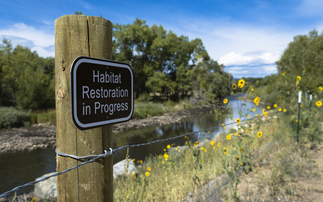On Thursday, New Zealand firm Carbon Match launched an online spot trading platform for carbon instruments under the NZ Emission Trading Scheme (NZ ETS). The launch of a trading platform is positive news for market participants. Carbon Match hopes its new platform will improve transparency, squeeze brokerage margins and increase trade volumes.
The Kiwi carbon market has faced a number of fundamental challenges: weak price signalling, regulatory uncertainty and opaque supply fundamentals. Additionally, to date, the NZ ETS has experienced limited liquidity. This is due to its size, its approach to permit allocation, and the scheme's cost containment features.
To encourage afforestation, forests planted after 1989 are eligible to opt into the NZ ETS and earn credits (termed New Zealand Units - NZUs) by storing carbon. Pre-1990 forests do not earn NZUs as the entire Kyoto Protocol uses a baseline of 1990.
As a partial compensation for this cut-off date, pre-1990 forests are allocated a one-off issuance of allowances. Much of this supply, however, is still to enter the market due to bureaucratic delays and reluctance from foresters to sell their NZUs.
This approach to allocation has also complicated price discovery as it renders the fundamental balance of NZU supply and demand opaque: there is essentially no limit on the issuance of NZUs throughout the early stages of the scheme. This makes NZU valuation, based on fundamentals analysis, easier said than done.
The introduction of an exchange offers a partial solution to these problems by alleviating some of the knowledge deficit and improving attitudes towards carbon trading, two major barriers to increased liquidity.
Furthermore, without an exchange carbon is traded via over-the-counter (OTC) contracts. OTC trading hinders price transparency which invariably leads to inflated brokerage fees and widely disparate price expectations. For example, brokerage fees within the NZ ETS have historically ranged from NZ$0.10 to NZ$0.45 per NZU, and larger bilateral deals sometimes charge brokerage fees of as much as five per cent to 10 per cent of the transaction value. Transactional fees on Carbon Match are five cents per NZU.
The NZ ETS has a long way to go to become a truly deep and liquid carbon market. This is largely due to the government's cost containment features - a NZ$25/tonne price cap and "two tonnes per NZU" surrender obligation - which makes the cost of carbon cheap to the point of irrelevance for many regulated entities.
However, in terms of developing institutional capacity and knowledge, the NZ ETS has come a long way since trading commenced in earnest in July 2010. The launch of a trading platform is positive news for regulated companies, as it will mean lower transaction costs for carbon trades and increased price discovery for a scheme that faces considerable supply uncertainties and knowledge and attitude barriers amongst market participants.
Matthew Gray is an analyst at IDEAcarbon








